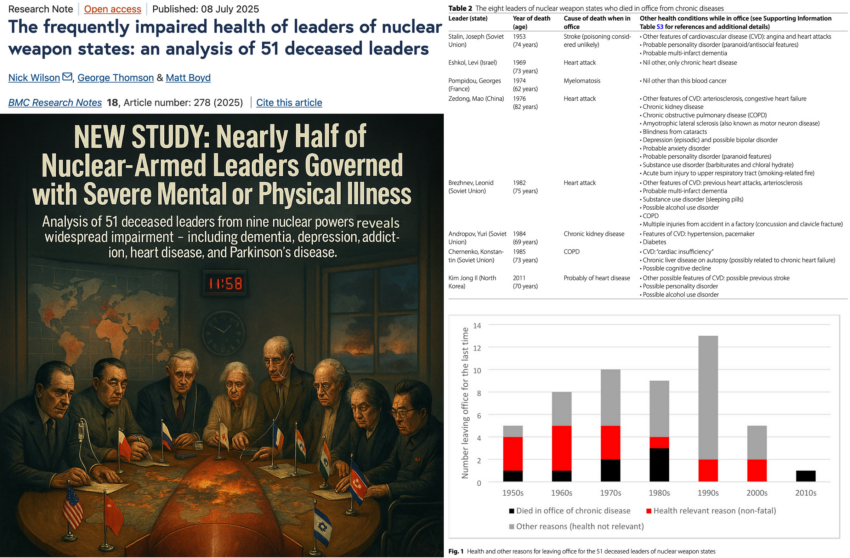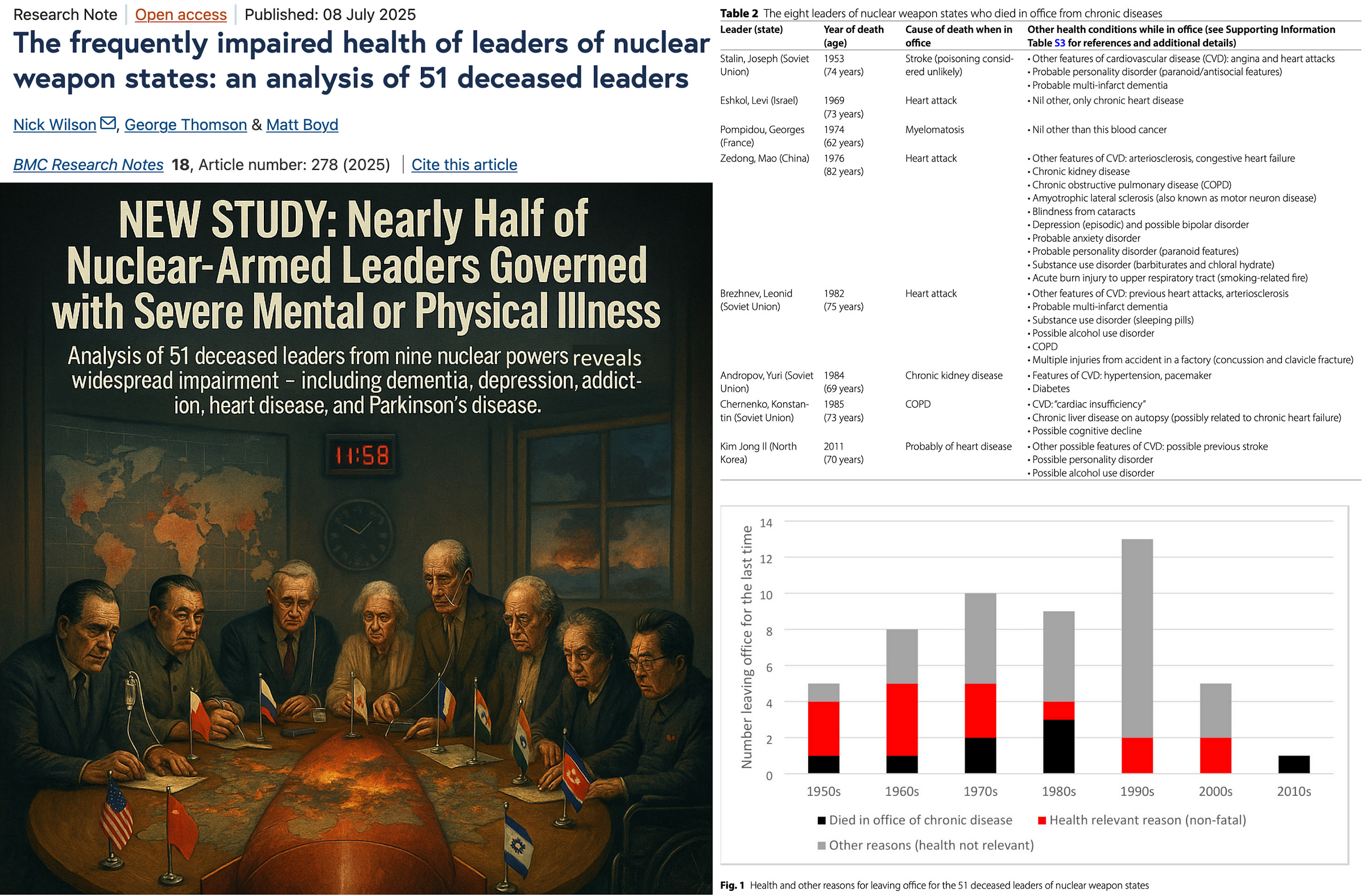A new peer‑reviewed study titled, The frequently impaired health of leaders of nuclear weapon states: an analysis of 51 deceased leaders, has revealed a chilling truth: 45% of past leaders of nuclear‑armed nations since the dawn of the atomic age had health conditions that could impair judgment — some while holding sole authority to launch nuclear weapons.
The study analyzed the biographies of 51 deceased leaders from the U.S., Russia/Soviet Union, China, UK, France, India, Pakistan, Israel, and North Korea:
Key Findings
-
Prevalence of impairment: Almost half (45%) had serious health conditions while in power.
-
Death in office: 17% died from chronic illness while still leading, often after years of declining capacity.
-
On average, these leaders had 3.9 health conditions each — with Mao Zedong having 10.
-
62% had cardiovascular disease (heart attack or stroke).
-
Many had multi‑infarct dementia, severe depression, personality disorders, substance abuse problems, or cognitive decline.
-
-
Health‑related departures: Of the leaders who left office alive, 38% had health problems likely influencing their exit.
-
This group averaged 2.9 conditions each, from severe mood disorders and partial deafness to early Alzheimer’s and Parkinson’s disease.
-
-
Direct impairment during crises: Examples include Khrushchev’s volatile mental state during the Cuban Missile Crisis and Nixon being too intoxicated to participate in a nuclear alert decision during a Middle East crisis.
-
Sole authority risk: In countries like the U.S., Russia, and North Korea, a single leader can order a nuclear strike — with no parliamentary approval required.
In some nuclear‑armed states, a single individual can authorize a launch — no checks, no second opinions. The fate of millions, even billions, has at times rested in the hands of leaders in physical decline, cognitive deterioration, or deep psychological distress.
Based on the previous few years, one can only imagine how many current leaders of nuclear powers may also be governing with serious impairments.
These impairments can distort judgment and increase the likelihood of high‑risk or escalatory decisions — a factor that may help explain some of the destructive conflicts we see today.
Epidemiologist and Foundation Administrator, McCullough Foundation
www.mcculloughfnd.org
Please consider following both the McCullough Foundation and my personal account on X (formerly Twitter) for further content.
Click this link for the original source of this article.
Author: Nicolas Hulscher, MPH
This content is courtesy of, and owned and copyrighted by, https://petermcculloughmd.substack.com and its author. This content is made available by use of the public RSS feed offered by the host site and is used for educational purposes only. If you are the author or represent the host site and would like this content removed now and in the future, please contact USSANews.com using the email address in the Contact page found in the website menu.









